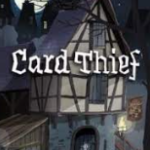Flappy Bird, a simple but highly addicting mobile game quickly became a worldwide sensation in 2014, and snagged the interest of millions of gamers around the world. Despite its simple graphics and basic games, its sudden success generated debates, inspired developers, and created an imprint on the game world of gaming on mobile. In this article, we’ll dive into the history of Flappy Bird, the reasons for its huge popularity and influence upon the industry of gaming and the controversy surrounding the game.
The Birth of Flappy Bird
Dong Nguyen, a Vietnamese independent game developer, developed Flappy Bird. His company, .Gears (dotGears), released it on May 13, 2013. Contrary to the majority of games released at this time Flappy Bird had pixelated images that resembled 8-bit video games of the 1980s. The game was designed to be easy and simple, allowing players to control the tiny bird by tapping on the screen to make it fly and avoid obstacles.
Flappy Bird launched in 2013 but remained relatively unknown until the beginning of 2014. Suddenly, it soared to the top of the charts on both the Apple App Store and Google Play Store. The rise in popularity was mostly organic, fueled by word-of-mouth as well as social networks, but without any substantial marketing efforts.
Gameplay Mechanics: Simplicity at Its Finest
Flappy Bird’s gameplay is surprisingly simple. Players tap their screen to keep the bird in flight and guide it through a set of pipes that are green. Reminiscent of pipes from Super Mario. Super Mario franchise. Each successful attempt through the pipes is worth one point. But a single error, whether falling to the floor or crashing into the pipe — ends the game, forcing the player to begin again from scratch.
Its simplicity in Flappy Bird’s gameplay is a large one of the reasons it became addictive. The game’s challenging nature and the ability to try for a higher score than their prior score encouraged more attempts, sometimes leading to frustration, and the well-known “just one more try” attitude.
The Viral Explosion
In early 2014 Flappy Bird became a worldwide phenomenon. The game’s popularity surged instantaneously, topping the charts of downloads in more than 100 countries. The game was downloaded more than 50 million times. This was the most downloaded game available on the App Store as well as Google Play Store.
Many factors were responsible for Flappy Bird’s popularity:
Simplicity and accessibility: This game’s straightforward mechanisms meant that anyone could take it on and play no matter what age, or previous experience.
Challenging Gameplay: The challenging degree created an atmosphere the challenge and competition among players who wanted to share their best ratings on Facebook and Twitter.
Memes as well as Social Media: The humor triggered by the game’s difficulty lead to the development of memes. Increasing the game’s popularity.
Nostalgia: The retro-inspired images and sound effects created an emotion of nostalgia among older gamers who were raised with 16-bit and 8-bit games.
The Controversy: Too Much Success?
Flappy Bird’s swift success wasn’t without its share of controversy. The game’s popularity drew criticism in both gaming communities as well as the media. Some people accused Nguyen of stealing aspects from games like Super Mario, specifically the green pipes of Super Mario. Others have questioned the ethicality of making a game that was so addicting that it led to anger and in a few cases, obsessional behaviour.
The most shocking development was in February 2014 when Nguyen announced he was taking down Flappy Bird from app store. Despite the game’s significant revenues through ads in-app–reportedly at least $50,000 per day, Nguyen mentioned the game’s addictive nature and the pressure of gaining fame as the reasons behind the game’s removal. The move shocked the fans and generated additional media interest, with many speculated on the true motives for the decision.
The Aftermath: Flappy Bird’s Enduring Legacy
Despite its demise from the app stores, Flappy Bird left a lasting impression on the world of mobile gaming. The game was the catalyst for a wave of clones and many efforts to take advantage of the game’s success with similar gameplay and visuals. This phenomenon demonstrated the potential of viral trends within the gaming industry. And how a basic idea could obtain international success quickly.
Flappy Bird influenced the design style of many indie game developers. It demonstrated that a game does not need to be complicated or feature-rich to achieve popularity. The popularity in Flappy Bird encouraged developers to explore minimalist designs and to focus on creating fun, repeatable game loops.
Flappy Bird Clones and Imitations
After the demise of Flappy Bird and the subsequent app stores being overflowing with copies and imitators. Some of the games were clear copies of the original however others put a different twist on the original idea. Games such as “Splashy Fish” and “Flappy Wings” tried to fill the gap created in the wake of Flappy Bird. However, neither were able to duplicate its success.
The flood of imitations underscored the importance of creativity as well as timing within the game industry. While a number copies of these games saw initially success, they soon disappeared into the background when their popularity waned and the Flappy Bird craze died down. This phenomenon also raised concerns about intellectual property within the world of gaming both players and developers were arguing about the moral implications of cloning games that were popular.
The Cultural Impact of Flappy Bird
Flappy Bird’s influence grew beyond the gaming world. The game quickly became a cult phenomenon, appearing in TV shows, songs, and even academic research. Critics often cited its rapid rise and decline as examples of the volatility of viral content and the psychological effects of gaming addiction.
The game also provoked discussion about the challenges that indie developers face in an industry that is dominated by large corporations. The decision of Nguyen to take down Flappy Bird underscored mental health issues which can result due to sudden fame and success. Bringing attention to the human aspect that is often overlooked in game development.
Flappy Bird’s Return and Legacy
As of August 14, 2014 Flappy Bird was able to make a quick return in the shape of a new version, dubbed “Flappy Birds Family”. The version offered multiplayer options and new challenges. Although, it did not obtain the same level of popularity like the first.
Presently, Flappy Bird is remembered as a moment of singular significance in the history of mobile gaming. The Flappy Bird story is an illustration of simpleness’s power, effect of viral trends, as well as the challenges of navigating unexpected popularity. While it was a brief-lived trend, Flappy Bird’s legacy continues to influence game design as well as the industry of mobile gaming in general.
Lessons learned from Flappy Bird
The tale of Flappy Bird provides several important lessons for game designers as well as marketers:
Simplicity Sells: The game doesn’t need to be complicated to succeed. Flappy Bird’s simple design and simple mechanics made it easy to play and enjoyable.
Viral Potential: Social media’s power and word-of-mouth can make even the most unpopular games to greatness. However, the success may also be elusive and unpredictable.
*Mental Health Awareness: The pressures of fame and popularity can cause serious mental health issues for creators. The gaming industry should help indie developers and tackle the problems they confront.
Originality Matters: Although clones might be successful in the short term but originality is essential for long-term success in the gaming industry.
Conclusion: The Flappy Bird Phenomenon
Flappy Bird’s fluctuating heights and lows are an indication of the unpredictability nature of the game industry. The game did not conform to expectations, and was an international sensation despite its humble beginnings. Although its time at the highest was short its impact in mobile gaming as well as its social significance are undeniable.
In examining the history that was left by Flappy Bird, it’s clear that this game’s simplicity resulted in something extraordinary. It caught the imagination of millions of players, created conversations about the design of games and mental health. And left an indelible impression on the game world game on mobile devices. Flappy Bird may be gone from app stores, however its impact will be felt for a long in the future.










